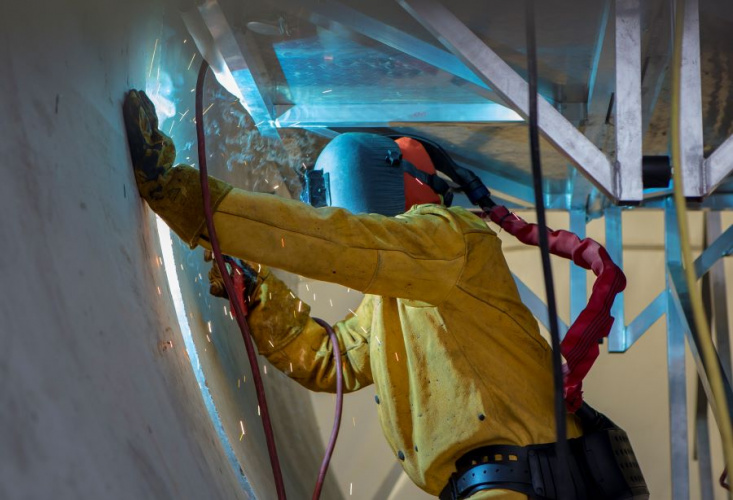
According to Nuclear South West, which promotes the industry in the region, 50 per cent of future recruits across the sector will need to be women in order to meet the target of 40 per cent female representation by 2030. The industry body claims that people from more diverse backgrounds must be encouraged into the sector and that Hinkley Point is the ideal platform with which to do so.
Hinkley Point C cost estimate rises again
Video of the week: World’s largest crane set for Hinkley Point C
“We currently have around 22 per cent of women working in the nuclear sector across all levels, and many fewer at senior levels. That can and should be better,” said Beccy Pleasant, head of Nuclear Skills for the Nuclear Skills Strategy Group (NSSG), who is working to bring a business case for a new £1.7m Skills Delivery Plan.
“We need to excite the next generation and get them thinking more about a career in nuclear. And as an industry, we need to move away from the perception that we only have highly technical roles, or work requiring highly qualified people with a scientific background. While we need those roles, we also need employees who are skilled in work like cable-pulling and welding, as well as engineers and project managers who might be working in other sectors.”

Beccy will be speaking about the NSSG’s Skills Delivery Plan and her role in developing skills for the future of the industry at Nuclear South West 2019, the UK’s largest nuclear conference which takes place in Somerset on October 2 and 3. One of the key objectives of the plan is to develop the ‘NextGen Nuclear’ project, a ‘whole sector’ approach to improving outreach and careers activity that aims to help bridge the gap between the sector and schools and prepare young people for the nucelar workforce.
“The focus needs to be on schools and teachers to attract more females into studying STEM subjects, but also looking at how we can transition experienced staff in from other sectors,” Beccy continued. “We are working hard with our employees to support people who want to redeploy from declining energy sectors into our roles.





Project to investigate hybrid approach to titanium manufacturing
What is this a hybrid of? Superplastic forming tends to be performed slowly as otherwise the behaviour is the hot creep that typifies hot...